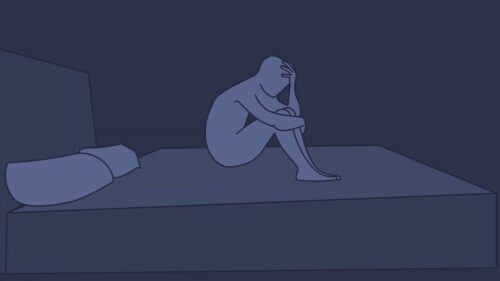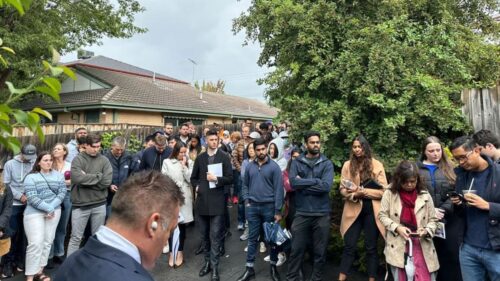

The economic and cultural strains young men face are reshaping their approach to relationships. Romance has become increasingly unattainable, creating barriers to forming new relationships and adding strain to existing ones. Many young singles, especially men, have been sidelined from the dating scene due to financial pressures. With living costs soaring, many men find themselves calculating whether the cost of a date is worth the financial expenditure. Traditional expectations often place the financial burden of first dates on men, exacerbating their financial woes. The rising cost of living has turned dating from a meaningful experience into a financial calculation, causing resentment and disincentivizing partner searches. These financial pressures contribute to feelings of isolation and disconnection, which further compound the crisis (Kelsey-Sugg & Weekes, 2024).

On the other hand, the cost of living can push some men into rushed and unsatisfactory relationships. The financial burden of living alone, dubbed the “singles tax,” can amount to more than $9,000 per year, incentivizing quick partnerships as a means of sharing living costs. However, these flash-relationships often generate negative mental health impacts and emotional burnout, with relationships tending to be frail and short-lived. Even in established relationships, financial stress magnifies conflicts, leading couples to argue over trivial matters like utility bills or grocery costs. With one in three couples staying together out of financial necessity rather than emotional connection, the cost of living crisis is fostering toxic, unsustainable relationships that damage mental health and long-term well-being (McCreadie, 2024; Coffey, 2024).

The global housing crisis has broader societal implications that extend beyond personal relationships. Housing unaffordability is shaping political attitudes, particularly among young men, who feel left behind by modern economic systems. This sense of frustration is evident in the growing divergence between political views among men and women, especially among Generation Z. In the United States, men in this generation are now 30% less liberal than their female counterparts, a trend mirrored in other countries, including South Korea and China. Radical populist politicians, capitalizing on the anger and resentment felt by many young men, have gained support by amplifying the narrative that these men have been left behind by society (Burn-Murdoch, 2024).
The economic challenges facing young men today have eroded traditional paths to stability, such as long-term employment and homeownership. These once-standard markers of adulthood are becoming increasingly unattainable, creating a sense of disillusionment and alienation. For many young men, this frustration has manifested in anger, making them vulnerable to radicalization by polarizing figures who exploit their discontent. Social media has amplified this radicalization, offering platforms for extreme voices that validate the sense of entitlement and resentment these men feel toward a society they perceive as having failed them (Bartlett, 2024).
The Japanese Case:

Japan’s young adult males are confronting a growing crisis that threatens both their personal well-being and the nation’s long-term stability. Rising living costs, combined with the pressures of Japan’s grueling work culture—characterized by long hours and minimal work-life balance—are making it increasingly difficult for men in their twenties and thirties to pursue traditional life milestones like marriage and starting a family. In Metropolitan Tokyo, a staggering 79.4% of men aged 25-29 remain unmarried, largely due to their inability to afford the financial security and time necessary for family life. This crisis is not just personal but national, as Japan’s population continues to shrink. In 2023, only 727,277 children were born, the lowest number recorded since the country began tracking these statistics (Statistics Bureau, n.d.).
The prioritization of work above personal life is strangling Japan’s younger generation, especially young men who are expected to work long hours, leaving little room for fulfilling personal lives. The inability to marry or start families is not only an economic issue but a reflection of deeper cultural problems. As these young men age, their sense of hopelessness often intensifies, contributing to Japan’s high suicide rates. In 2023, middle-aged men (aged 50-59) had the highest suicide rate in Japan, with 23.4 suicides per 100,000 people. Although multiple factors contribute to this statistic, including financial strain and inadequate mental healthcare, many of these issues can be traced back to the burdens placed on young men today (Ralston, Holt, Terpstra, & Kai-Cheng, 2007).
In Japan, and indeed globally, the pressures young men face extend beyond mere financial strain. The broader economic context, including escalating living costs, limited job security, and an increasingly unattainable housing market, is contributing to a sense of hopelessness that not only undermines personal relationships but fuels broader societal challenges. The crisis facing young men today is not isolated; it is a reflection of deeper economic and cultural shifts that, if left unchecked, will continue to have profound implications for social cohesion and political stability worldwide.
References:
Bartlett, C. (2024, March 3). How a cost of living crisis can fuel extremism among young men. *360*. https://360info.org/how-a-cost-of-living-crisis-can-fuel-extremism-among-young-men/
Burn-Murdoch, J. (2024, January 26). A new global gender divide is emerging. *Financial Times*. https://www.ft.com/content/29fd9b5c-2f35-41bf-9d4c-994db4e12998
Coffey, H. (2024, September 9). The cost of living crisis has ruined our love lives. *The Independent*. https://www.independent.co.uk/life-style/date-relationships-cost-expensive-love-b2542370.html
Kelsey-Sugg, A., & Weekes, M. (2024, May 22). The cost-of-living crisis is changing our relationships. Here’s what we can do about it. *ABC News*. https://www.abc.net.au/news/2024-05-22/cost-of-living-stress-is-impacting-our-relationships/103793952
McCreadie, M. (2024, September 9). Single and paying for it – the cost of living alone in the UK in 2024. *UK Debt Expert*. https://ukdebtexpert.co.uk/blog/single-and-paying-for-it-the-cost-of-living-alone-in-the-uk-in-2024/
Ralston, D. A., Holt, D. H., Terpstra, R. H., & Kai-Cheng, Y. (2007). The impact of national culture and economic ideology on managerial work values: a study of the United States, Russia, Japan, and China. *Journal of International Business Studies, 39*(1), 8–26. https://doi.org/10.1057/palgrave.jibs.8400330
Statistics Bureau Home Page 4. Marital status. (n.d.). *Www.stat.go.jp*. https://www.stat.go.jp/english/data/kokusei/2000/kihon1/00/04.html
The CAINZ Digest is published by CAINZ, a student society affiliated with the Faculty of Business at the University of Melbourne. Opinions published are not necessarily those of the publishers, printers or editors. CAINZ and the University of Melbourne do not accept any responsibility for the accuracy of information contained in the publication.